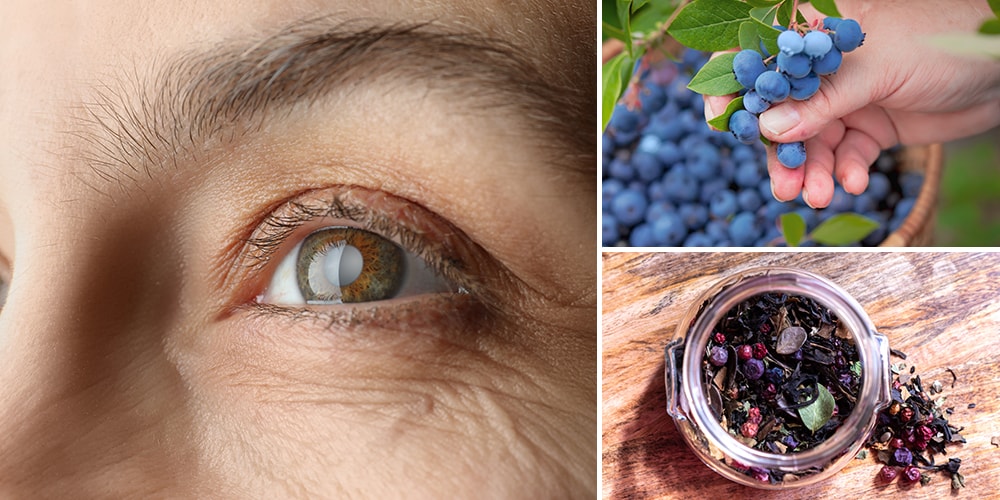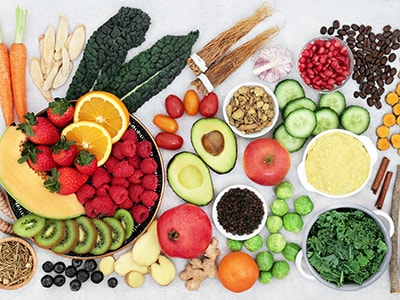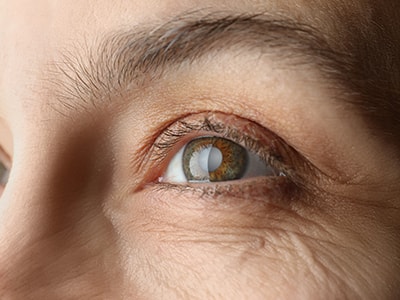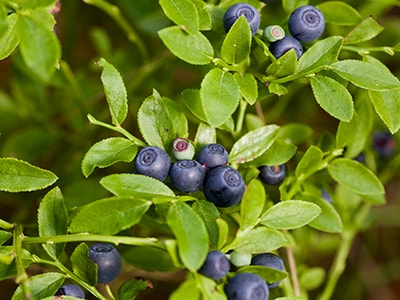
The Truth About Cataracts and What You Can Do to Avoid Them
Cataracts are a typical occurrence as we age, affecting around 30 million Americans today. Those in their 80s or 90s will almost certainly have to deal with this eye problem, which causes visual problems and can lead to blindness if not treated. Sun exposure, diabetes, autoimmune disorders treated with steroids, and smoking can all raise risk. The good news is that there are a number of prophylactic measures that can dramatically limit the growth and symptoms of cataracts — and even minimize the likelihood of cataracts occurring in the first place. These include nutrition, vitamins, and one of my favorite herbal remedies with various eye health advantages.
What are The Different Types of Cataracts?
Simply put, a cataract is when the lens of the eye becomes cloudy due to changes in proteins that harden and impact elasticity. This process typically begins when a person is in their mid-forties, but children have also been known to develop cataracts — especially if they have a strong family history of them. Sometimes babies are born with a condition called congenital cataracts.
Cataracts usually develop over time and, in many cases, take years to cause significant issues. The three different types include: nuclear cataracts that form in the inner part of the lens; those that grow in the outer cortex called cortical cataracts; and posterior sub capsular cataracts, which are associated with diabetes, obesity, and steroid use. These develop in the back of the capsule that encloses the lens.
Here are some symptoms to watch out for:
- Progressive issues with night vision
- Blurred or cloudy vision
- Increasing sensitivity to light and glare
- Needing to change eyeglass or lens prescriptions often
- Having difficulty with black and white contrast while reading
- Seeing faded or yellowed colors
The American Academy of Ophthalmology recommends an eye exam for those 40 years and older who are at low risk every:
- 2 to 4 years for ages 40-54
- 1 to 3 years for ages 55-64
- 1 to 2 years for ages 65 years and older
If you have type 1 or type 2 diabetes, an autoimmune disorder treated with steroids, or struggle with obesity, it is important to have a comprehensive eye exam once a year regardless of your age as these are high-risk groups for the development of cataracts and other eye diseases.
Surgery is the current method for removing cataracts to prevent blindness. However, researchers are studying eye drops that contain lanosterol, which were shown to clear cataracts after six weeks of treatment in animal models. It is important to note that the team also needed to inject the compound into the eye directly as there were absorption issues with the drops alone. Because of this, scientists then turned their attention to developing an eye drop with high absorbability that would bypass the need for injections. According to a 2018 study published in the journal Biophysics, such an eye drop was successfully created that stabilized rapidly progressive cataracts in humans after eight months of use — without the need for injections.
Lifestyle and Dietary Tips
Thankfully, there are simple lifestyle and dietary steps we can take to reduce the risk of developing cataracts and improve eye health. These include:
Protecting your eyes from sunlight. Being outside and exposed to UV light from the sun causes oxidative damage to the proteins in your lens, causing them to clump together to form cataracts. A 2020 study established that a lifetime of higher levels of sun exposure significantly increases the risk of developing this eye disease. Wearing a wide-brimmed hat and sunglasses that provide 100% UV protection for both UVA and UVB rays is an excellent way to protect your eyes and prevent damage. If you spend a lot of time in front of a computer or on devices, it is also a good idea to wear blue light blocking glasses.
Quit smoking. If you are a smoker, you have two to three times the risk of developing cataracts compared to those who do not smoke. Moreover, smoking is also linked to age-related macular degeneration, an eye condition that can lead to vision loss.
 Eat a diet rich in antioxidants. A recent review published in the journal Nutrients found that those who consumed an antioxidant-rich diet had the lowest rate of cataracts. This makes sense since oxidative stress is the main cause of cataract formation. The research team notes that antioxidants from food tend to be the most effective.
Eat a diet rich in antioxidants. A recent review published in the journal Nutrients found that those who consumed an antioxidant-rich diet had the lowest rate of cataracts. This makes sense since oxidative stress is the main cause of cataract formation. The research team notes that antioxidants from food tend to be the most effective.
According to the American Optometric Association, the following nutrients are helpful for improving eye health. Here are the foods that are rich in each one:
Lutein and zeaxanthin: dark leafy greens, colorful fruits and vegetables such as broccoli, corn, peas, persimmons, and tangerines; eggs and turnip greens.
Vitamin C: oranges, grapefruit, strawberries, berries, papaya, broccoli, green peppers, and tomatoes.
Vitamin E: nuts, wheat germ, and sweet potatoes.
Essential fatty acids: cold water wild-caught fish such as salmon, tuna, and sardines; chia seed and flaxseed.
Zinc: grass-fed beef, oysters, shellfish, pumpkin seeds, nuts, yogurt, kefir, and chickpeas.
Vitamin A (beta-carotene) is also extremely important for eye health and reducing the risk of cataracts. Good food-based choices include carrots, sweet potatoes, and dark leafy greens.
The Best Medicinal Herb for Healthy Eyes and Clear Sight
Hands down, bilberry (Vaccinium myrtillus) is one of the best herbs you can use for maintaining healthy vision and reducing your risk of cataracts, glaucoma, and macular degeneration. It contains compounds called anthocyanins, which are plant pigments with outstanding antioxidant abilities. The berry is also an excellent source of vitamin C.
Also known as European blueberries, these are smaller than their North American counterparts and have been used since the Middle Ages for a range of health benefits. As I wrote in The Lost Book of Herbal Remedies:
“Bilberries are remarkable for their ability to improve the health and function of the eyes. It can help treat night blindness, cataracts, macular degeneration, poor vision, and chronic eye strain. Bilberry protects the cells of the eye, reduces inflammation, and helps prevent damage to the ocular nerves in diabetics. Use it internally; it is not used topically in the eyes.”
Additionally, bilberry is exceptional for reducing blood glucose levels and insulin resistance. This is important for eye health as high blood sugar levels damage the eyes — not to mention it also harms the kidneys, nerves, and blood vessels. What’s more, bilberries may help to combat obesity by lowering fat absorption. Considering obesity is a risk factor for eye disease, this is very good news indeed. These outstanding benefits are why I have included this mighty berry in my potent and effective Heart Health Blend Tincture.
Not only does this powerful formulation promote eye health and reduce the risk of cataracts, it also lowers inflammation, helps to maintain healthy blood pressure levels, regulates blood sugar, and improves circulation.
Don’t let your eyesight fade away. Boost your heart and vision with this natural extract — visit the apothecary today to learn more.




What does do to the kidneys? It said harms ??
High blood sugar/diabetes harms the kidney, etc., NOT the bilberry.
Not the bilberry. Read the paragraph again. The high blood sugar harms kidneys
English teacher here–there is a pronoun reference problem in the paragraph which implies that “it” is the bilberry. Just sayin’. That aside, I wish I had known about bilberry for my dad and sister, and with my family history, I might start it as a preventative.
I am glad you mentioned Bluberries as this is what they are known by to us
I have early stages of cataracts and hate driving at night as I get flashes of light going down virtually on the outside of my eyes plus reflections of the bumper bars of cars affect me I have cloudy vision .. I wear glasses to read but am finding my Long distance vision is getting blurry now … am worried that I’m going to lose my vision …. I am nearly 63 and my hearing is not so good as well as I have had tinnitus since 2021 and it takes me a long time to get to sleep at night getting old sucks!
Hi Wendy,
Thank you so much for sharing your story with us!
Let us know if you give Bilberry a try and how it works for you.
Many blessings and good health!
The symptoms sound like Glaucoma. Have your eye pressure checked, a.s.a.p!
What is the best way to get the benefits from bilberries Fresh, whole, dried, in capsules?
I’m 70 years old and have nearly perfect vision, I’ve been a welder for most of my life and have worried about my vision so I have tried to eat a diet that conforms very well with the one you describe. I’ve never smoked and try to maintain my weight with fair success. I have no night vision problems either, the Lord has blessed me with better health than I probably deserve but I always try to do my part too.